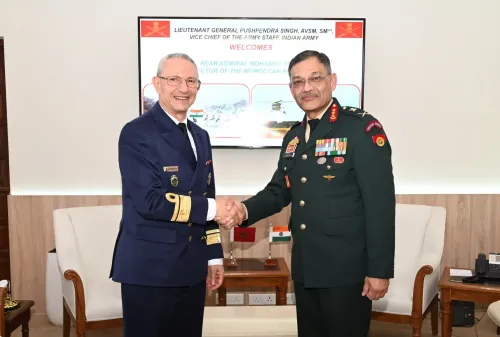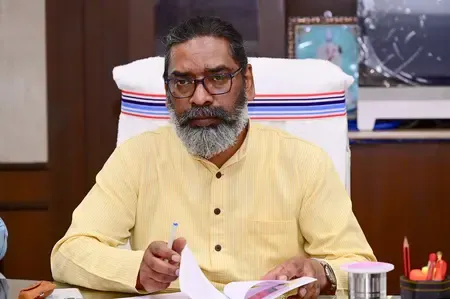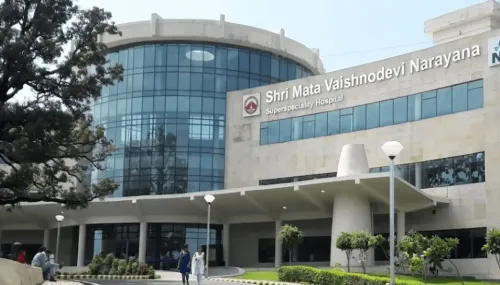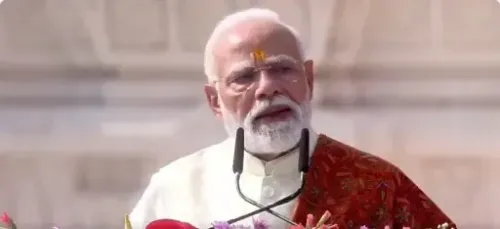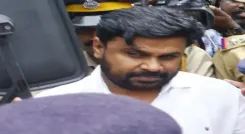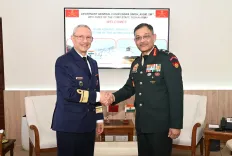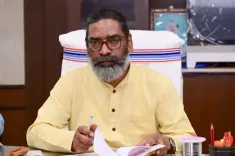Create Revenue Sources to Enhance BEST: Maha CM Fadnavis
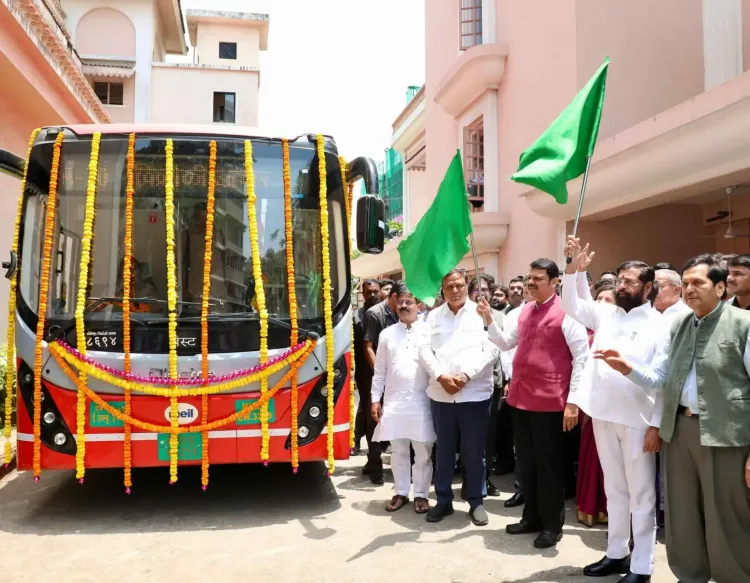
Synopsis
Key Takeaways
- BEST is vital for Mumbai's transport network.
- Real-time tracking systems will improve commuter experience.
- Redeveloping depots for commercial use can boost revenue.
- Small, advanced buses are recommended for narrow city roads.
- A unified mobility platform will streamline multiple transport modes.
Mumbai, April 25 (NationPress) Describing Mumbai’s BEST (Brihanmumbai Electric Supply and Transport) as the city’s backbone, Maharashtra Chief Minister Devendra Fadnavis highlighted the importance of the organization not just in enhancing passenger satisfaction through modern buses and improved facilities, but also in generating its own revenue streams.
He addressed officials during a review meeting of BEST held today.
CM Fadnavis directed the team to minimize wait times for buses and recommended the swift implementation of a real-time tracking system to keep commuters updated about bus arrival times and locations. He stressed on the need to increase the fleet of buses and adopt cutting-edge technologies for better efficiency.
He introduced a plan for redeveloping the Bandra, Dindoshi, and Deonar bus depots, which includes leasing portions of the land for commercial spaces, housing, and bus stations, a strategy that could enhance BEST's revenue significantly.
Considering Mumbai’s narrow streets, he also suggested investing in smaller, state-of-the-art buses. He advised utilizing funds from the National Clean Air Programme (NCAP) for this initiative.
CM Fadnavis revealed that a unified mobility platform is being developed to integrate local trains, metro, monorail, and buses, allowing citizens to travel using a single ticket across various transport modes, which would benefit BEST in terms of passenger volume and coordination.
Co-Guardian Minister Ashish Shelar proposed adding entertainment options during depot redevelopment. CM Fadnavis endorsed the concept of building Marathi cinema theatres at five depots, which could foster cultural growth and generate additional revenue.
To alleviate BEST’s financial challenges, CM Fadnavis suggested that the BrihanMumbai Municipal Corporation (BMC) allocate a dedicated 3 percent of its budget specifically for public transport, which would greatly assist BEST.
BEST General Manager Srinivas requested exemption from toll fees, payment of Rs 1,658 crore owed in employee dues, and relief from certain government taxes.
CM Fadnavis encouraged BEST to submit a formal proposal, assuring that the state government would look favorably upon it.
Deputy CM Eknath Shinde called for strategic planning of bus and metro connectivity. He pushed for the introduction of small, modern buses that suit Mumbai’s unique conditions and emphasized enhancing public services to meet taxpayers' expectations. He also highlighted the potential of BEST's available land across Mumbai to generate additional revenue.
Meanwhile, BEST has added a fleet of 503 fully electric, air-conditioned buses to its services. CM Fadnavis and Dy CM Shinde inaugurated one such bus traveling from Vikhroli to Mumbai Central.
A total of 2,100 AC buses have been authorized for Mumbai, of which 503 have already been delivered, with another 2,400 on order. To enhance the commuting experience, BEST will implement GPS systems for real-time bus tracking. A collaboration with Google is in the works for seamless bus information access.
According to the BEST administration, there are 2,783 buses, including 875 electric ones, against the required fleet size of over 7,000 based on population. Fares are lower compared to autos, taxis, and metro. However, BEST has requested a fare increase. The undertaking aims to transition its entire fleet to electric by 2027.

